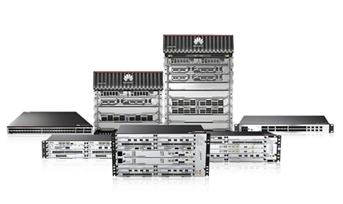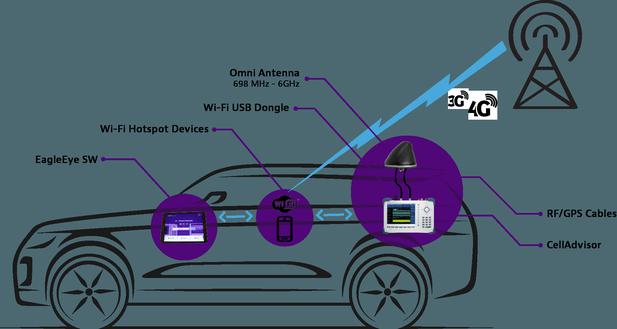How to Choose the Right Enterprise Router for Your Business
Selecting an enterprise router is a critical decision that directly impacts your business's operational efficiency and network reliability. With the router serving as the foundation of your network infrastructure, it must handle high traffic volumes, protect sensitive data, and adapt to future growth. A suitable enterprise router ensures smooth connectivity, optimal performance, and robust security for your business operations. This guide explores the essential factors to consider when choosing an enterprise router, including network requirements, connectivity reliability, and management tools. Understanding these elements will help you make an informed decision that aligns with your business needs and scalability goals.

What Factors Should You Consider Before Choosing an Enterprise Router?
Network Size and Traffic Requirements
Understanding your network size and traffic demands is the first step in choosing the right enterprise router. Assess the number of devices your router needs to support and the data volume your network typically handles. High-traffic environments, such as offices with heavy streaming, data transfers, or cloud-based applications, require routers with high throughput and robust performance capabilities. Also, consider future growth. A scalable router that can handle additional connections and increased bandwidth ensures your network can accommodate expanding business operations without compromising performance.
Security Features and Threat Management
Security is paramount when selecting an enterprise router. Look for routers that offer advanced security features such as firewalls, intrusion prevention systems (IPS), and secure access control lists (ACLs). Encryption protocols like WPA3 and support for VPNs add layers of protection to your network. Threat management tools, including malware detection and content filtering, safeguard your network from cyber threats. For compliance with regulatory standards, ensure the router supports detailed activity logs and reporting.
Budget and Long-Term Scalability
When considering an enterprise router, aligning your budget with the device's features and scalability is crucial. A router with modular designs and upgradeable components can save significant costs over time by adapting to growing business needs. For example, routers with VLAN support allow network segmentation, ensuring better resource allocation as your organization expands. Cloud-based management options simplify scaling across multiple sites or departments. Choosing a router with a comprehensive warranty and dependable customer support reduces the risks of unforeseen downtime and maintenance costs. Ultimately, a scalable and cost-effective router is a smart investment that grows alongside your business, ensuring optimal performance and reliability.

How Do Enterprise Routers Improve Connectivity and Reliability?
Multi-WAN Support and Redundancy
Enterprise routers featuring Multi-WAN support enhance connectivity by integrating multiple internet connections to balance network traffic effectively. If one connection experiences downtime, the router seamlessly switches to another, maintaining uninterrupted business operations. This failover capability is vital for industries reliant on continuous internet access, such as e-commerce and customer service. Additionally, routers with redundancy in hardware, such as dual power supplies or backup systems, provide an added layer of reliability. These features help mitigate disruptions caused by equipment failures, allowing businesses to focus on productivity without worrying about network stability.
Load Balancing and Traffic Prioritization
Load balancing is essential for managing network traffic efficiently. By distributing data across multiple connections, enterprise routers ensure that no single link becomes overwhelmed. This prevents bottlenecks and maintains consistent performance, even during high-demand periods. Features like Quality of Service (QoS) settings enable IT teams to prioritize bandwidth for critical applications such as VoIP, video conferencing, and cloud backups. These capabilities are indispensable for businesses that rely on uninterrupted communication and real-time collaboration tools. With optimized traffic flow, enterprise routers ensure smooth and reliable operations across the organization.
Compatibility with Advanced Networking Standards
Compatibility with advanced networking standards, such as Wi-Fi 6 and IPv6, is a must for modern enterprise routers. These standards enhance network efficiency by offering faster speeds, reduced latency, and support for a greater number of connected devices. Wi-Fi 6, for example, improves performance in environments with high device density, while IPv6 ensures better routing and security. Routers that integrate seamlessly with IoT devices and cloud-based applications prepare businesses for technological advancements, allowing for future upgrades without significant infrastructure changes. This compatibility ensures that your network remains competitive and capable of meeting evolving demands.
What Management Tools Are Essential in an Enterprise Router?
Centralized Management and Monitoring
Centralized management streamlines network oversight, allowing IT administrators to access real-time performance data, adjust configurations, and address issues from a single platform. This feature is especially beneficial for multi-site organizations, as cloud-based tools enable centralized control across all locations. Automated alerts for anomalies further enhance network reliability by allowing proactive measures before issues escalate. With centralized management, businesses can reduce operational complexity while ensuring consistent network performance and security across their entire infrastructure.
Real-Time Analytics and Reporting
Real-time analytics offer invaluable insights into network activity, such as traffic patterns, device usage, and performance trends. These features help IT teams identify potential issues early, enabling prompt resolution and minimizing downtime. Advanced enterprise routers often include AI-driven analytics, which predict failures and recommend optimization strategies based on historical data. Reporting tools provide detailed metrics like bandwidth consumption and user behavior, empowering businesses to make informed decisions for resource allocation. These capabilities ensure that networks operate at peak efficiency and adapt to changing demands.
Remote Access and Easy Configuration
Remote access capabilities are indispensable for IT teams managing distributed networks or supporting remote workforces. These features enable administrators to configure settings, apply updates, and troubleshoot issues from anywhere, reducing the need for on-site interventions. Intuitive user interfaces and streamlined configuration processes minimize setup times and simplify network adjustments. Enterprise routers with remote management tools allow businesses to maintain secure and efficient operations, even when physical access to the hardware is not possible. This flexibility enhances productivity and ensures continuous network optimization.
Conclusion
Choosing the right enterprise router is vital for building a secure, reliable, and scalable network infrastructure. By evaluating factors such as network size, security features, and budget, businesses can select routers tailored to their specific needs. Enterprise Routers with advanced connectivity features, such as Multi-WAN support and traffic prioritization, ensure consistent performance. Additionally, management tools like centralized dashboards, real-time analytics, and remote access simplify network oversight and enhance efficiency. Investing in a feature-rich enterprise router not only supports current operations but also prepares your business for future growth. With the right router, you can boost productivity, maintain network security, and ensure seamless connectivity for years to come.
Latest: What Are the Best Practices for Charging Your Tablet?








